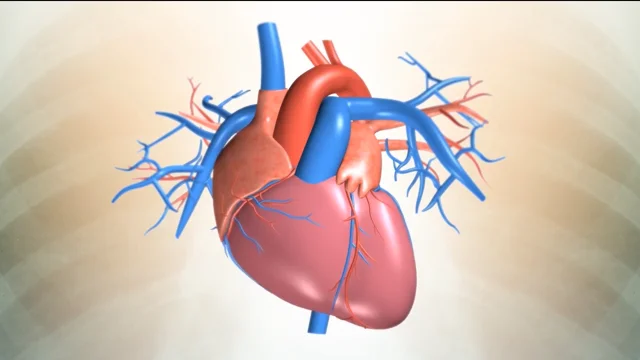Dr. Indrajeet Tyagi and Dr. Iranna Hirapur
Heart disease is the No. 1 cause of death worldwide, and it is mostly preventable by changing your lifestyle and managing risk factors. Narrowed arteries may limit the heart’s supply of oxygen-rich blood, resulting in weakened heart muscle. A heart attack is a form of coronary artery disease that occurs suddenly. Damage to the heart muscle from a heart attack may mean the heart can no longer pump as well as it should.
With our busy modern lifestyles, it is too easy to neglect our cardiovascular health. Even if you are a health-conscious person but due to some challenging circumstances, your cardiovascular health can sometimes take second place. However, the health of your cardiovascular system is vital in determining both your longevity and quality of life. In many developed countries, cardiovascular diseases are the biggest killers by far.
The warning signs and symptoms of a weak heart are chest pain, shortness of breath, coughing or wheezing, swelling in the legs, ankles, or feet, poor blood supply to extremities, fatigue, fast or uneven heartbeat (Palpitations).
What causes heart to pump harder?
Strong emotional responses, such as stress, anxiety or panic attacks, depression, strenuous exercise, stimulants including caffeine, nicotine, cocaine, amphetamines, and cold and cough medications that contain pseudoephedrine can cause damage to your heart and make it lose its pumping capacity.
You can treat a weak heart pump through your lifestyle changes – including eating a healthy diet, exercising regularly and stopping smoking. Taking a range of medicines and implantation of 2 to 3 devices in chest can help control your heart rhythm. Luckily, there are simple steps you can take right now to support your heart and circulatory system.
1) Make your heart pump stronger: Do regularly simple exercises that get you moving and increase your heart rate. Start by setting a modest goal and work your way up to meet that goal. Begin by walking 10-15 minutes three times a week, then, increase walk time by 15 minutes, or increase distance or change pace. Biking, swimming, and dancing are also great activities for beginners.
When it comes to cardiovascular health, exercise is crucial. Get active by performing aerobic exercises that increase your overall aerobic fitness, as measured by a treadmill test, for example, and it helps your cardiac output to assess how well your heart pumps. Aerobic exercise also reduces the risk of type 2 diabetes and, if you already live with diabetes, helps you control your blood glucose. A half-hour walk or other moderate activities for five days per week will make you fitter, stronger, and healthier overall.
2) Improve your diet: A healthy diet should include plenty of tasty, and natural foods that will support your heart health instead of making drastic changes, which may be hard to sustain in the long term, add a few heart-healthy foods to your daily intake and cut down a little on less healthy options. Reduce using processed carbohydrates and hydrogenated fats since they can affect your cardiovascular health, so choose foods with healthier fats. Examples include nuts, flaxseed, olives and avocados. Make sure to have a balanced diet and lots of fresh fruit and vegetables.
3) Get your cholesterol checked: Monitor your cholesterol and triglycerides regularly to maintain a good health of your cardiovascular system. You should ask your doctor to perform a test called a fasting lipoprotein profile. This test, usually performed every four to six years, looks at your levels of both good and bad cholesterol (HDL and LDL, respectively). If your LDL cholesterol is high or your HDL cholesterol is low, you may be at risk of developing problems with your heart and circulatory system.
4) Monitor your blood pressure: Blood pressure that is too high or too low is associated with heart and circulatory issues. Most of the time you probably will not experience any symptoms of high blood pressure. This is why it is essential to have your blood pressure checked every two years and discuss your concerns about your heart or circulation with your doctor. Learn more about signs of illness and follow advices on lifestyle changes and medical interventions, if necessary to improve cardiovascular health from a medical professional.
5) Do not overeat: Eating a lot of food at once leads to: 1) Blood shifting from the heart to the digestive system, 2) Faster and irregular heart rhythms, which can lead to heart attack or heart failure. Although this advice primarily applies during the holidays, when deaths from heart attacks spike however, it’s valid year round.
6) Give up smoking: If you are a smoker, the single best thing you can do for your cardiovascular health is to stop as soon as you can. Giving up smoking is not easy, but try to quit it. Tobacco has multiple damaging effects on your heart and circulatory system, including increased blood pressure and damage to your blood vessels. The good news is that your body will begin healing itself as soon as you quit smoking. Your blood pressure returns to normal level and lung function recovers in around three months, and after a year, your heart may well be as healthy as a non-smoker’s.
7) Stress management: Stress management approaches include learning skills such as problem solving, focusing on important tasks first, and managing your time. Improving your emotional awareness and reactions ability to cope with difficult events in life.
(Authors: Dr. Indrajeet Tyagi, M. R. Medical College, Kalaburagi, Karnataka and Dr Iranna S. Hirapur, MD, DM (Cardiology) Interventional Cardiologist at Heart Foundation, Kalaburagi, Karnataka)







